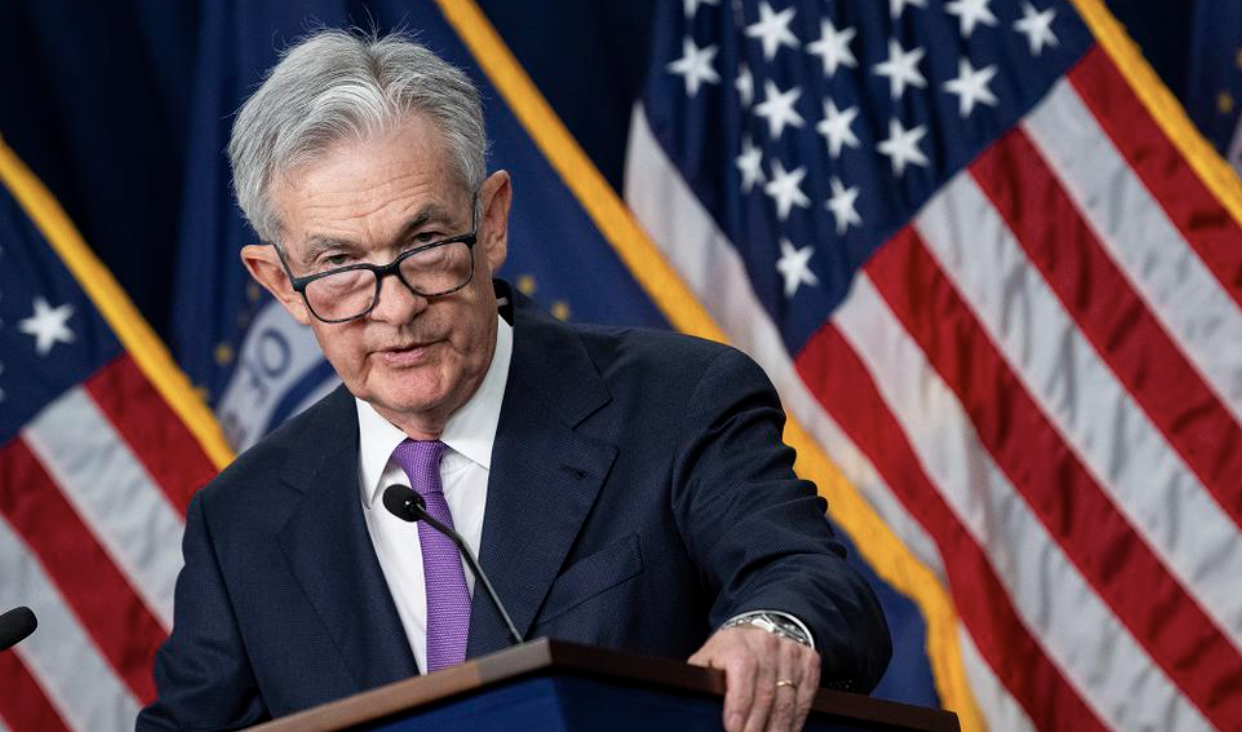Guys, this time I’m serious. That seems to be the message central bankers have started telling anyone who’ll listen, and especially the markets. The problem is, everyone seems to think they’re just saying that.
After US government bonds broke through the 5% level on their inexorable upward journey, they suddenly reversed course. A strong rally, apparently the result of short-covering, took them back into the 4% range. Thereafter a raft of soft economic data in Western economies, from weaker job creation to slowing inflation, along with some messaging from central banks that the heavy lifting in the fight against inflation was done, kept the rally going. By the middle of this week, with US interest rates heading back towards 4%, stock markets took the promise of cheap money and ran, recording their best week in a while.
The resulting loosening of financial conditions alarmed central banks, though. So on Thursday Jerome Powell stepped in to turn off the music and switch the lights back on. “The process of getting inflation sustainably down to 2% has a long way to go,” the Chairman of the Federal Reserve Board, the US equivalent of a central bank, told an IMF conference this week. His colleagues elsewhere were quick to concur, with Christine Lagarde saying that the European Central Bank wouldn’t be cutting rates for at least a couple of quarters and a deputy governor at the Bank of Canada adding that interest rates wouldn’t return to the ultra-low levels we once knew.
But investors have heard this all before. Ever since Alan Greenspan initiated the “Greenspan Put” after the 1987 stock market crash, investors have assumed that each time markets fall, central banks will put them back on track by cutting interest rates. Although central bankers have repeatedly tried to extricate themselves from this understanding, they have caved at each sign of stress in stock, bond or property markets. So investors have come to regard their protestations that this time will be different as little more than the boy crying wolf.
Yet things have changed since the end of the pandemic. Not only has inflation returned as a serious threat for the first time in decades, but contrary to what was initially assumed, it is likely to prove chronic (even if at manageable levels). Changes in labour markets and the global economy have altered the inflation regime, making it unlikely that inflation will return to previous levels very soon, if ever. That means higher interest rates are probably here to stay.
Moreover, despite cries from investors that the markets can’t bear much more pain, given how sharply central banks have choked off money supply, what they neglect to mention is the sheer volume of money still circulating. It’s true that over the last couple of years, central banks have sucked $6 trillion out of the global economy, an unprecedented tightening. But this is a small share of the more than $30 trillion they’ve pumped into the world economy since the 2008 financial crisis. With much of that money still around, markets can rally sharply every time there’s a hint that better days might soon come.
This battle of wills will likely continue. But with the exception of the Bank of Japan, which faces a peculiar problem in the country’s long stagnation, it seems unlikely the major central banks will back down this time — at least not until they are satisfied they have inflation firmly back under control. The Greenspan Put may never come back. When this finally dawns on investors, things could get rocky in markets. Investors should beware.











Join the discussion
Join like minded readers that support our journalism by becoming a paid subscriber
To join the discussion in the comments, become a paid subscriber.
Join like minded readers that support our journalism, read unlimited articles and enjoy other subscriber-only benefits.
Subscribe